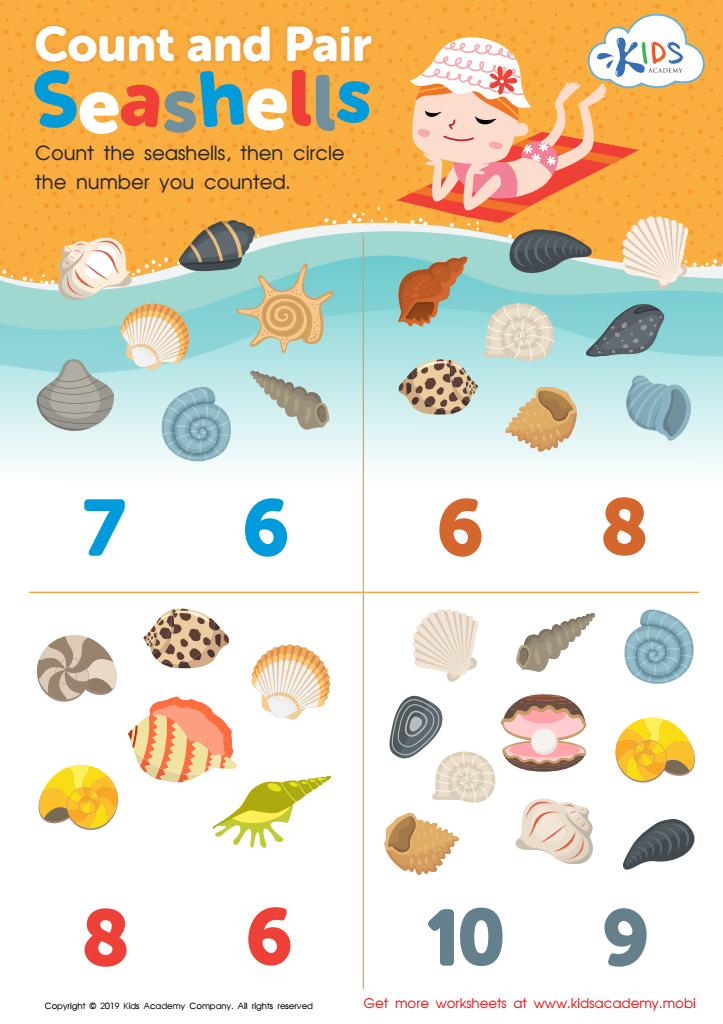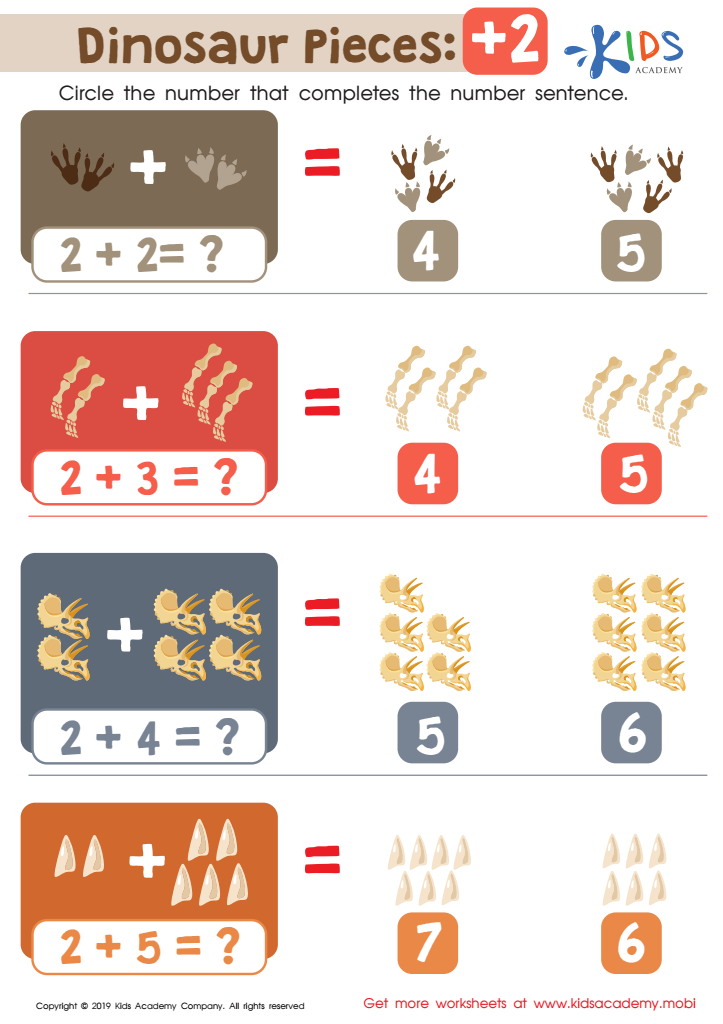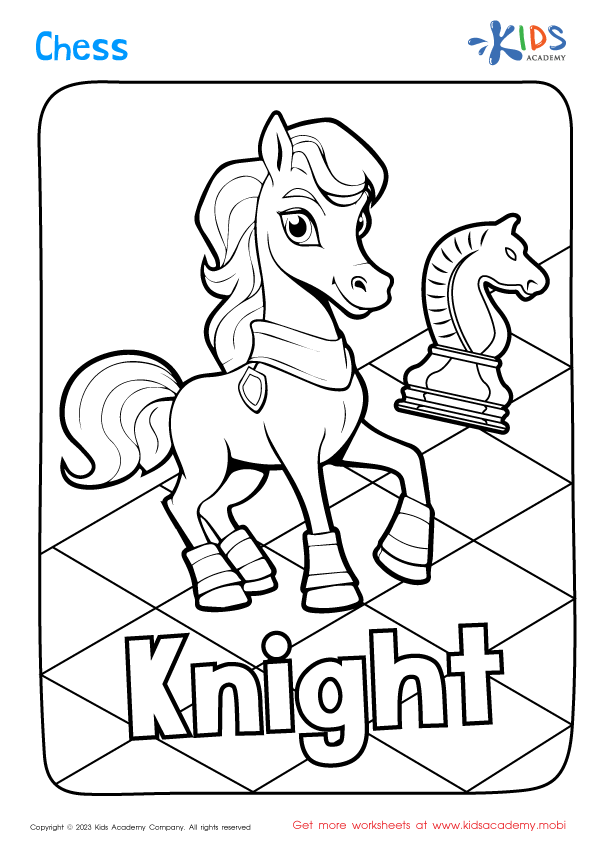Fine motor development Easy Worksheets for 4-Year-Olds
3 filtered results
-
From - To
Welcome to our collection of "Fine Motor Development Easy Worksheets for 4-Year-Olds"! These engaging and age-appropriate worksheets are designed to enhance your child's fine motor skills through fun activities. Each worksheet features interactive tasks, such as tracing, cutting, and coloring, that help develop hand-eye coordination and dexterity. Perfect for home or classroom use, these resources promote independent learning while keeping kids excited and motivated. Encourage your little ones to practice their skills in a playful way! Explore our variety of worksheets that make learning enjoyable and effective for your preschooler. Empower your child’s growth and creativity today!


Count and Pair Seashells Worksheet


Dinosaur Pieces: +2 Worksheet
Fine motor development is crucial for 4-year-olds as it directly impacts their overall growth and learning. At this age, children are beginning to refine their hand-eye coordination and dexterity, skills essential for everyday tasks. Parents and teachers should care about this aspect of development because strong fine motor skills enable children to perform basic activities, such as holding a pencil, cutting with scissors, and manipulating small objects, which are foundational for academic success.
Moreover, fine motor skills contribute to cognitive development as children engage in hands-on activities that promote problem-solving and critical thinking. Activities that enhance fine motor skills, like drawing, crafting, or simple puzzles, can be easily integrated into playtime and lessons, making learning enjoyable and effective.
Additionally, children who struggle with fine motor tasks may experience frustration and a lack of confidence, potentially leading to reluctance in participating in school activities. By fostering fine motor skills early on, parents and teachers can help children build self-esteem, enjoy social interactions, and develop independence in their daily lives. Overall, nurturing fine motor development is essential for a child's readiness for school and for fostering lifelong skills.
 Assign to My Students
Assign to My Students





















